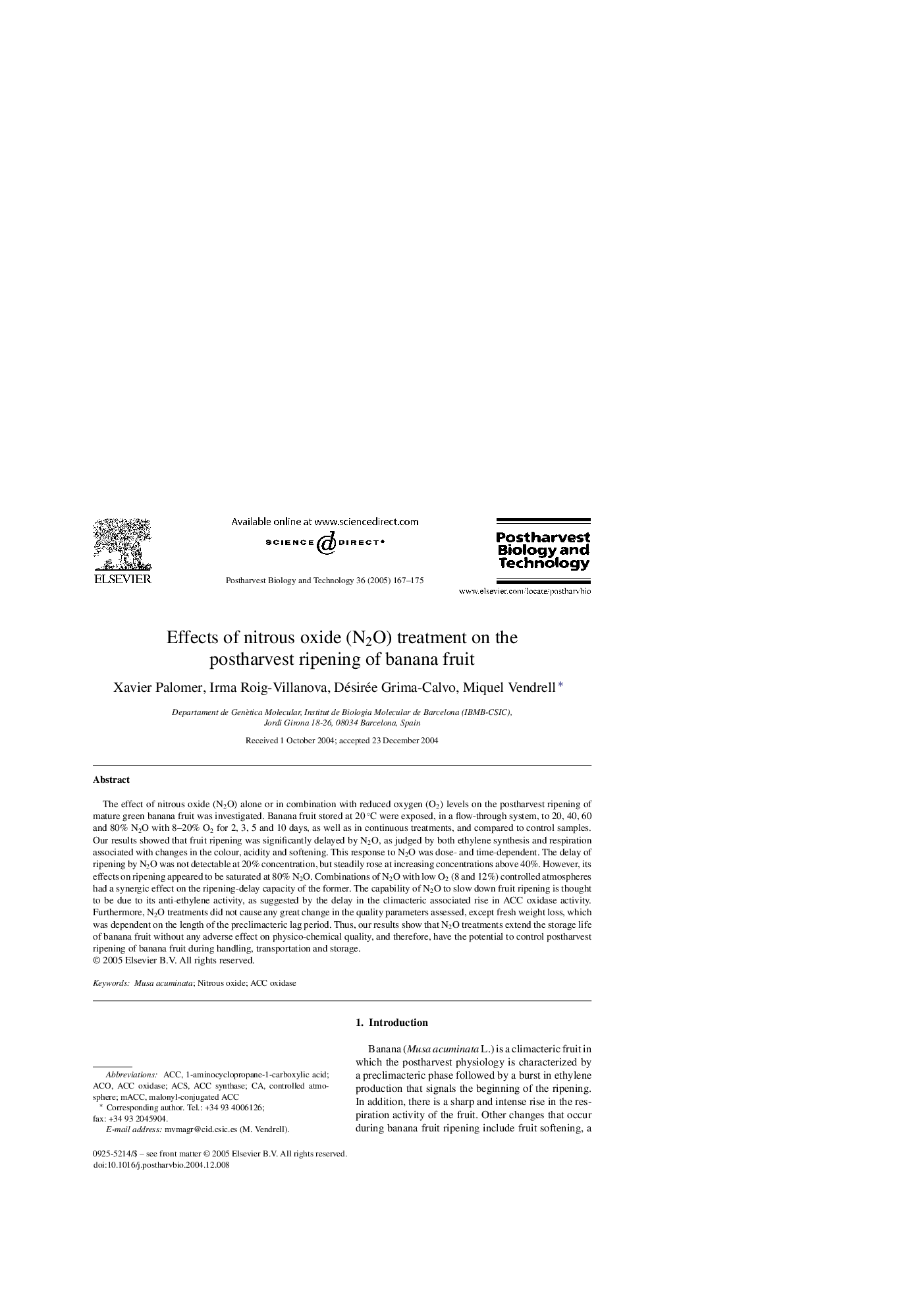| Article ID | Journal | Published Year | Pages | File Type |
|---|---|---|---|---|
| 9475131 | Postharvest Biology and Technology | 2005 | 9 Pages |
Abstract
The effect of nitrous oxide (N2O) alone or in combination with reduced oxygen (O2) levels on the postharvest ripening of mature green banana fruit was investigated. Banana fruit stored at 20 °C were exposed, in a flow-through system, to 20, 40, 60 and 80% N2O with 8-20% O2 for 2, 3, 5 and 10 days, as well as in continuous treatments, and compared to control samples. Our results showed that fruit ripening was significantly delayed by N2O, as judged by both ethylene synthesis and respiration associated with changes in the colour, acidity and softening. This response to N2O was dose- and time-dependent. The delay of ripening by N2O was not detectable at 20% concentration, but steadily rose at increasing concentrations above 40%. However, its effects on ripening appeared to be saturated at 80% N2O. Combinations of N2O with low O2 (8 and 12%) controlled atmospheres had a synergic effect on the ripening-delay capacity of the former. The capability of N2O to slow down fruit ripening is thought to be due to its anti-ethylene activity, as suggested by the delay in the climacteric associated rise in ACC oxidase activity. Furthermore, N2O treatments did not cause any great change in the quality parameters assessed, except fresh weight loss, which was dependent on the length of the preclimacteric lag period. Thus, our results show that N2O treatments extend the storage life of banana fruit without any adverse effect on physico-chemical quality, and therefore, have the potential to control postharvest ripening of banana fruit during handling, transportation and storage.
Keywords
Related Topics
Life Sciences
Agricultural and Biological Sciences
Agronomy and Crop Science
Authors
Xavier Palomer, Irma Roig-Villanova, Désirée Grima-Calvo, Miquel Vendrell,
